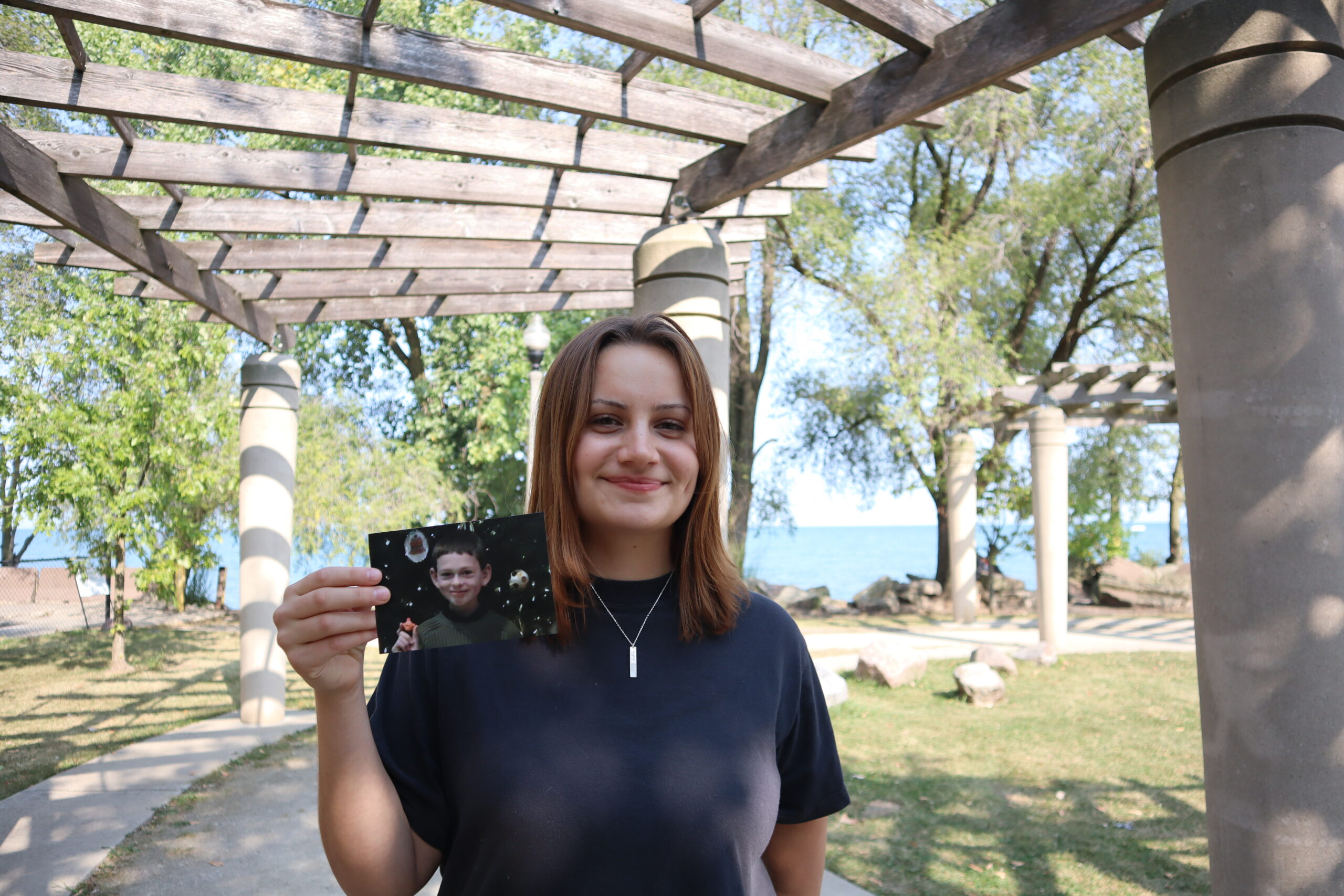It seems fitting that I received the worst news of my life in one of the most hellish environments imaginable – the basement of the School of Communication.
“Are you sitting?” my father asked. I was sitting uncomfortably on a high chair between the yellow walls of the winding corridor.
“We lost him.”
The already oppressive neon lighting in the basement grew even more intense as salty tears streamed into my eyes.
That February morning, my mother told my brothers and me that our sister Anna’s husband, Matthew, had a possible brain aneurysm. His chances of survival had dropped to heartbreaking levels.
After my mother broke the news to me, my dorm room became an island and I took on the role of a panicked, screaming seagull circling above it.
I sat in the solitude of my island, not knowing how to confront my neighbors in Mertz Hall with unanswerable questions like, “What should I do if my brother is dying 350 miles away and I have class in an hour but can’t focus on anything other than the fact that my brother might be dying?”
I thought that people who needed instructions on how to do laundry wouldn’t have an answer to a question like that at 8:30 in the morning.
After a series of hospital visits, funeral services, and commutes between Illinois and Iowa, I returned to be shocked to discover that while my life had been turned upside down, the rhythm of campus had remained the same.
Students shuffled to class, plates were filled and emptied in the cafeteria, skirts were pulled out for weekend evenings. Nothing shook deadlines off the calendar or deterred laughing friends from the rocks on the beach.
The constant routine seemed to mock my stagnant emotional state. In a dark, anxious haze, I felt out of step with the daily grind.
Solitude became a comfortable place to sit with racing thoughts and conflicting emotions.
As it turned out, the supposed stages of grief were less like a yellow brick road to acceptance and more like a tornado of sadness, frustration, nostalgia, and gratitude. Since I didn’t yet have this rough Wizard of Oz analogy in my vocabulary, I struggled to communicate my wants, needs, and thoughts to others at Loyola.
Most people didn’t seem to know how to talk to me about my grief after always telling me, “I’m here for you if you need anything.”
Even now, any mention of Matthew—whether his death or his life—breaks the flow of conversation, often resulting in changes of subject or oppressive silence.
I don’t say this to shame or blame anyone. Grief manifests itself differently for everyone, so tailoring to each individual’s experience is an incredibly delicate task. This difficulty is compounded when one has no personal experience of grief or is not fully educated about it. I can’t blame people for their inexperience.
In the weeks following my brother-in-law’s death, I struggled with the fear of being separated from everyone who could truly understand my loss—not just my grief, but the loss of Matthew.
How could anyone understand that despair if they had never looked into his kind eyes, felt his warm embrace, or known his laugh? If they had never known his triumphant board game skills, his passion for music, or his unwavering kindness, how could they ever feel compassion?
Feeling isolated on campus because of such questions made me hyperaware of the distance between my family and me. The physical space that separated us was incompatible with the emotional closeness that our shared loss demanded. During the most turbulent days, it was a saving grace that I lived just a Red Line and bus ride away from my brother and his girlfriend.
My family’s ability to communicate their grief digitally with humor and openness is a gift I don’t take for granted. I credit my sister’s resilience, hope, and honesty for serving as a role model for all of us.
Still, knowing that I couldn’t be with the people I love most while they were suffering immeasurable pain was agonizing, and it often brought me to tears. I’m sure there are people from my theology class who still think that I was only really upset because of Buddhism.
In my grief, I have learned not to hold grudges against others for their inability to understand my loss, and instead to focus on sharing the overwhelming goodness of my brother’s character with those who were not fortunate enough to know him. I enjoy talking about him and am grateful for friends who give me the opportunity to do so.
As I readjusted to life on campus in the weeks following Matthew’s death, I realized I couldn’t put my grief in a box. There’s never a good time to process a loss, and the task is never finished.
As hard as it was to be thrust back into the routine, it taught me that I had to find ways to incorporate the memory of Matthew into each day – with tears or with a smile, with a story about him or a phone call to my family. I just have to process it every day.
I find reminders of him all over campus — Frisbee throws around campus, a friend’s tight hug, a gentle breeze off the lake. Sometimes they make me smile, sometimes they make me cry, and sometimes they make me do both at the same time. Regardless, campus is truly becoming a more beautiful place as I learn to look for reflections of Matthew’s joy, care, and compassion.
His light lives on in everyone he met and in his daughter Evelyn, who was born in May. I try every day to live with the same wise heart he lived with and hope that everywhere I go – yes, even in the dank basement of the School of Communication – I can see the world through Matthew’s eyes.

